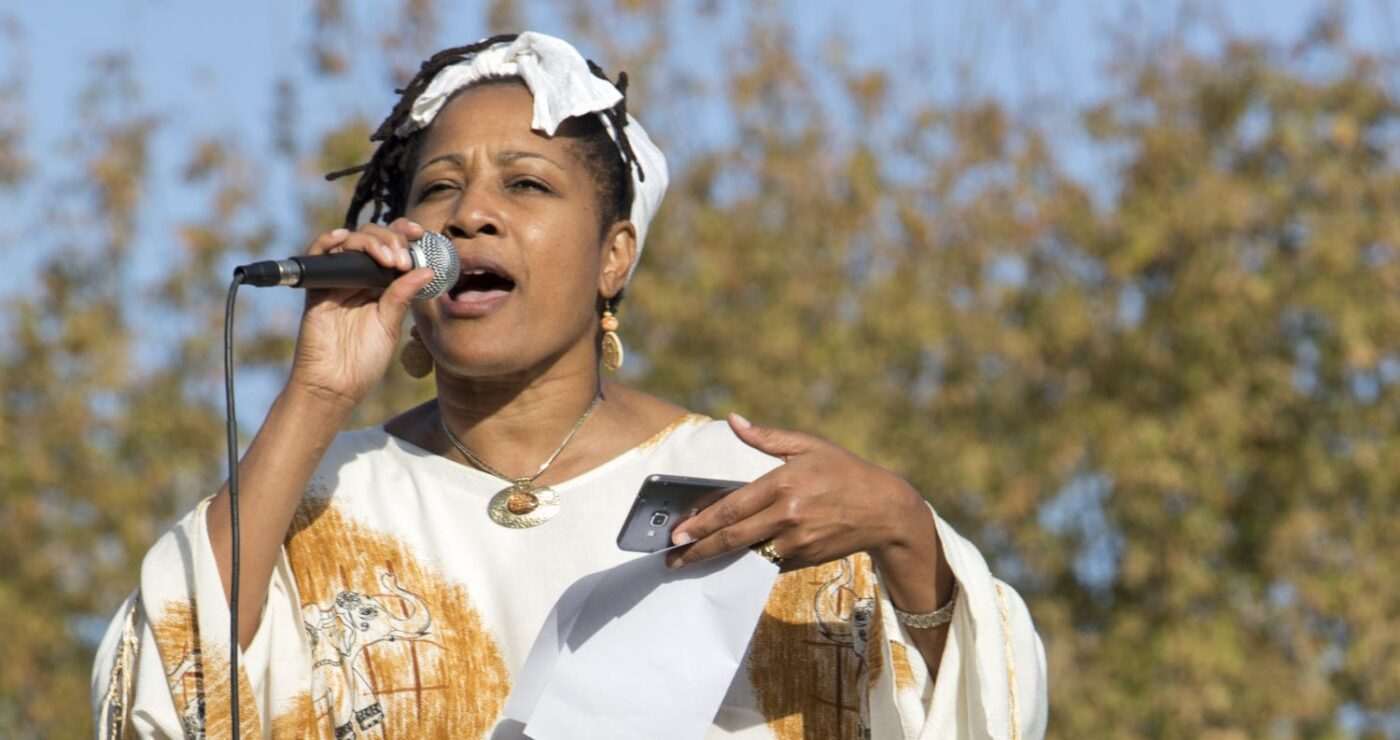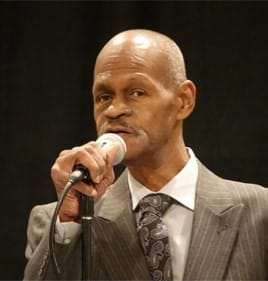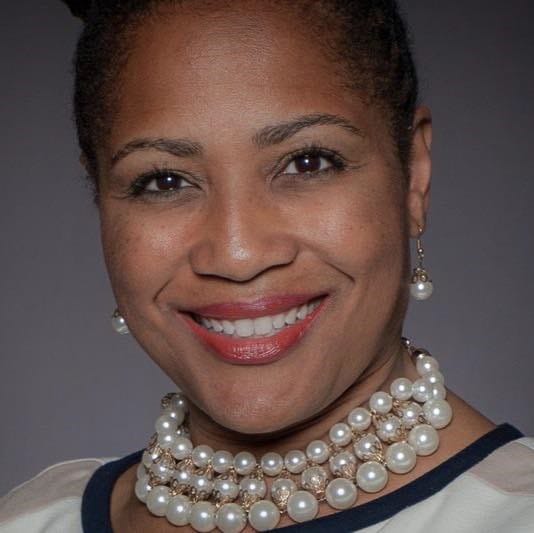
by Eddie Dillard
Recently, I sat with Lynette Gibson McElhaney, Oakland City Council member, District 3, for a candid conversation.
Ed: Thanks, Council Member McElhaney, for the opportunity to share your vision for West Oakland residents as you campaign for a third term as District 3’s City Council representative.
Lynette: It’s a funny thing – prior to running in 2012, I did not think about being an elected official. When my pastor and friends encouraged me to run, I was focused on economic growth, responsive and responsible policing, quality education and restoring government trust.
Essentially, I found that my neighbors and I shared a common set of concerns and I hoped that my 20+ years’ experience as an affordable housing leader would help improve our overall quality of life. My hope then, and now, is fueled by the fact that the vision for a vibrant, safe Oakland is strong and broadly shared across the city – regardless of race, age, gender or socioeconomic standing.
My challenge is how to help Oakland live up to this vision while working within a government system that is fragmented and often floundering despite good people holding key positions. In this type of system, cultivating good relationships is essential. I’ve worked hard to build and sustain key relationships so that I am in a position to get a good response from the administration as well as from private sector partners.
Ed: Your district appears to have more residential and commercial development projects than any other district in Oakland. Given that decades of systemic redlining has suppressed Oakland’s growth, relative to our neighbors, is there a specific policy or statutory activity that is creating this growth?
Lynette: My elders often speak fondly of the days when people spent hours shopping downtown at high-end department stores, so part of my goal was to return retail and hotels to the downtown section of the city’s comprehensive economic strategy to create jobs and provide access to quality shopping for Oakland residents and workers. To make this a reality, my colleagues and I have worked hard to become a council that thoughtfully deliberates alternatives and works to harmonize the needs of the various neighborhoods while attracting investment in housing, office and retail.
I am very proud of the policies I’ve drafted to enact impact fees, strengthen tenant protections and adopt equitable development policies. My vision is an Oakland that nurtures small businesses and attracts regional retailers, grocery stores and pharmacies.

Ed: What do you feel are your major accomplishments during your tenure on the Oakland City Council?
Lynette: My first major accomplishment was to create safe neighborhoods by establishing the Department of Violence Prevention (DVP). The DVP elevates the community’s voice and provides a public health lens to redress the acts of violence that disproportionately impact Black residents.
Black youth and adults are more likely to be killed than their white peers. Children growing up in violent homes and communities suffer academically and are more likely to become perpetrators of violent crimes as adults.
My second accomplishment was to address the lack of housing and homelessness in the city of Oakland. I led the council’s investment in providing lavatories and garbage service to un-permitted campsites and my Compassionate Communities pilot program with Supervisor Keith Carson led to the creation of the Cabin Communities that provide safe, sanitary temporary living and social services support for people living in unsafe, un-permitted tents and makeshift structures.
I was one of the council members who established regular funding for the Affordable Housing Trust and pushed for housing in the city’s Infrastructure Bond, with a portion of those funds dedicated to housing for the homeless. This was long before the need for housing rose to its current crisis levels. As council president, we adopted Development Impact Fees to help fund the subsidies needed to create affordable housing.
My third and I feel my most important accomplishment has been to invest in people and community: I am very proud that we have secured the largest investment in rehabilitation and honored Bobby Hutton at the historic deFremery Park, established the Black Arts Movement and Business District, opened the West Oakland Youth Center, protected the West Oakland Job Resource Center, sustained the West Oakland Neighborhood Career Center, increased funding to senior centers, increased funding to combat illegal dumping and secured millions of dollars to combat the commercial sexual exploitation of children, domestic violence and homicide.
In addition, we have helped attract and open grocery stores in previous food deserts in District 3, including Sprouts in Pill Hill and Community Foods on San Pablo. I am very proud for the role I played in establishing a Teamster Apprentice Program with CiviCorps, to provide a pathway to good jobs for once-troubled youth.
Ed: What are your future visions for West Oakland?

Lynette: We have many projects in the works and they are all tied together by a common vision of making District 3 the safest place in the nation to raise a child and age with dignity. Right now, I remain laser-focused on helping find a more comprehensive and compassionate response to the emergency housing crisis, to supporting the community’s efforts to heal from violence and trauma, to combating environmental injustice and to addressing economic inequity. We need to monitor all current and future projects to ensure that we are improving the health and overall quality of life for everyone who calls West Oakland home!
Ed: What is your position on the Oakland A’s stadium project?
Lynette: From day one, my position has been aligned with the community. The desire of the fans who love the franchise is important, but my priority lies with the residents and their families as well as the businesses located nearby that will be impacted by the construction and daily business of the ballpark. It’s imperative to me that this stadium is indeed privately funded and does not cost the city any money or loss of resources.
Ed: You are the primary creator of the Department of Violence Prevention. What has been their delivery to date?
Lynette: The DVP is still in its formative stage. Guillermo Cespedes, the first chief of violence prevention, came on board Sept. 23 and will deliver his first report to the Life Enrichment Committee on Dec. 3. Other early successes of the DVP include the Safe Oakland Summit which brought in 300 Oakland residents, the majority of whom are victims of violence, for deep conversation on what they want to see in the DVP; the city’s agreement to work with the Violence Prevention Coalition, a group of Oakland violence survivors; and the hiring of Guillermo Cespedes as the chief of violence prevention.
Mr. Cespedes is the former deputy mayor of Los Angeles who created various successful violence reduction strategies that have been modeled in other cities in the United States and Central America.
Ed: Is the office of the mayor in your future objectives?
Lynette: While I am always honored when people ask me to run for mayor, I have to admit, I am completely focused on representing and delivering for the residents of District 3.
I am committed to ensuring we stand with our West Oakland community as they advocate for their own.
Ed: With the changing of the council, have you seen any positive growth in council unity?
Lynette: I am pleased to serve with this council. The new members are thoughtful, passionate leaders who love the City of Oakland.
Ed: Having served two terms as West Oakland’s council representative, have you noticed any major community engagement which enhances the quality of life for West Oakland residents?
Lynette: Working through the City County Initiative, I was instrumental in ensuring the development of the Hoover Resident Action Council to give a voice to Hoover residents, whose voices were previously absent. I’ve also worked with great groups such the West Oakland Community Collaborative, SPARK, Biz Alert, WOIEP and NCPCs.
Community capacity building is the best way to enhance our community, long term. When we work in conjunction with the community, we better our neighborhoods and make sure the needs of the community are at the forefront.
We must work together as equal partners as opposed to dictating what is best for the communities. This approach is in direct opposition to the history of how government has worked with West Oakland – considering, for example, urban renewal, post office, 980, BART over land. I am committed to ensuring we stand with our West Oakland community as they advocate for their own.
Ed: Are you working with OUSD to enhance the quality of education in West Oakland public schools?
Lynette: While I do not have an official role with OUSD, I maintain an Educator’s Roundtable with District 3 principals to see how we can support the needs of their families and service on the Youth Ventures JPA to increase educational outcomes, reduce poverty and improve housing for Oakland students.
Ed: A Safe Place presented Council Member Lynette McElhaney its 2019 “Community Champion” award on Oct. 23, 2019, to honor her work in making a significant contribution towards violence prevention and making the West Oakland community a safe place to live. October is Domestic Violence Awareness Month and at the award ceremony, A Safe Place reminded the City of Oakland that we can only stop the cycle of domestic violence in our communities when we all work together.
Eddie Dillard, freelance writer for the Oakland Tribune, Oakland Post, Globe Newspaper and Daily Californian, can be reached at 510-706-9005 or edillard927@gmail.com. He worked 30 years for City of Oakland Office of Economic Development and for 15 years served as president of Oakland’s Black Chamber of Commerce.





